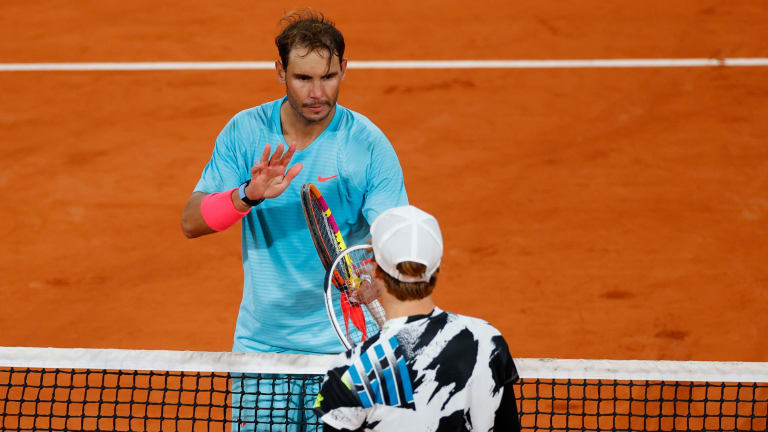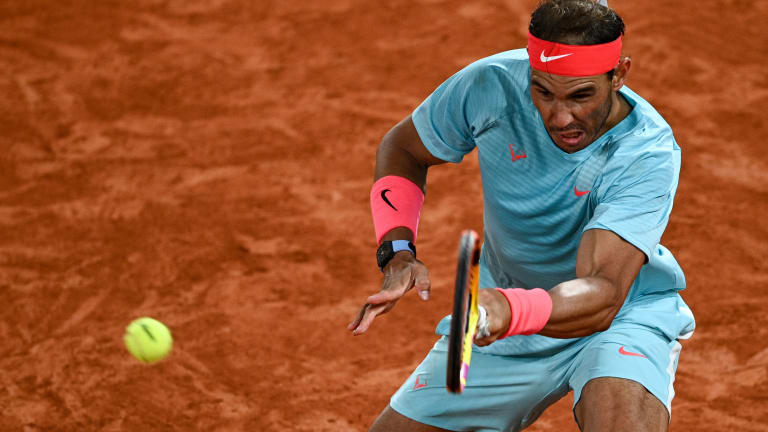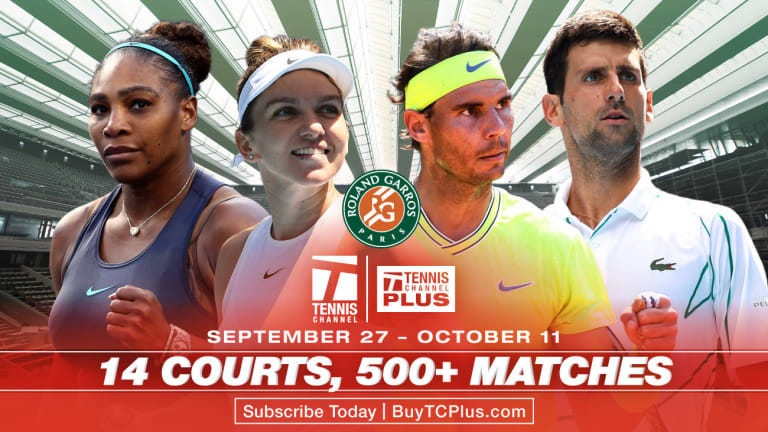Roland Garros
Playing well against Rafa at Roland Garros only makes him play better
By Oct 07, 2020Roland Garros
Rafael Nadal to be honored with 'exceptional' tribute on opening day of Roland Garros
By Apr 17, 2025Roland Garros
French Open organizers introduce draw to access ticket sales
By Jan 07, 2025Roland Garros
Coaches Corner: Juan Carlos Ferrero proves essential to Carlos Alcaraz's Roland Garros success
By Jun 14, 2024Roland Garros
What’s next for Novak and Nadal? Four ATP storylines after the Paris fortnight
By Jun 10, 2024Roland Garros
Naomi’s resurgence, Iga on grass: Four WTA storylines after the Paris fortnight
By Jun 10, 2024Roland Garros
Carlos Alcaraz becomes the clay-court champion that he—and we—always knew was possible
By Jun 09, 2024Roland Garros
Coco Gauff wins first Grand Slam doubles title with Katerina Siniakova in dream team debut
By Jun 09, 2024Roland Garros
Coco Gauff is a Grand Slam champion in singles and doubles, exceeding her own expectations
By Jun 09, 2024Roland Garros
From Rafa to Iga: as one owner of Roland Garros departs, a new one has moved in
By Jun 08, 2024Playing well against Rafa at Roland Garros only makes him play better
In the quarterfinals, Jannik Sinner learned a lesson many of Rafa’s opponents have learned over the last 15 years.
Published Oct 07, 2020
Advertising

Playing well against Rafa at Roland Garros only makes him play better
© AFP via Getty Images
Advertising

Playing well against Rafa at Roland Garros only makes him play better
© AFP via Getty Images
Advertising

Playing well against Rafa at Roland Garros only makes him play better